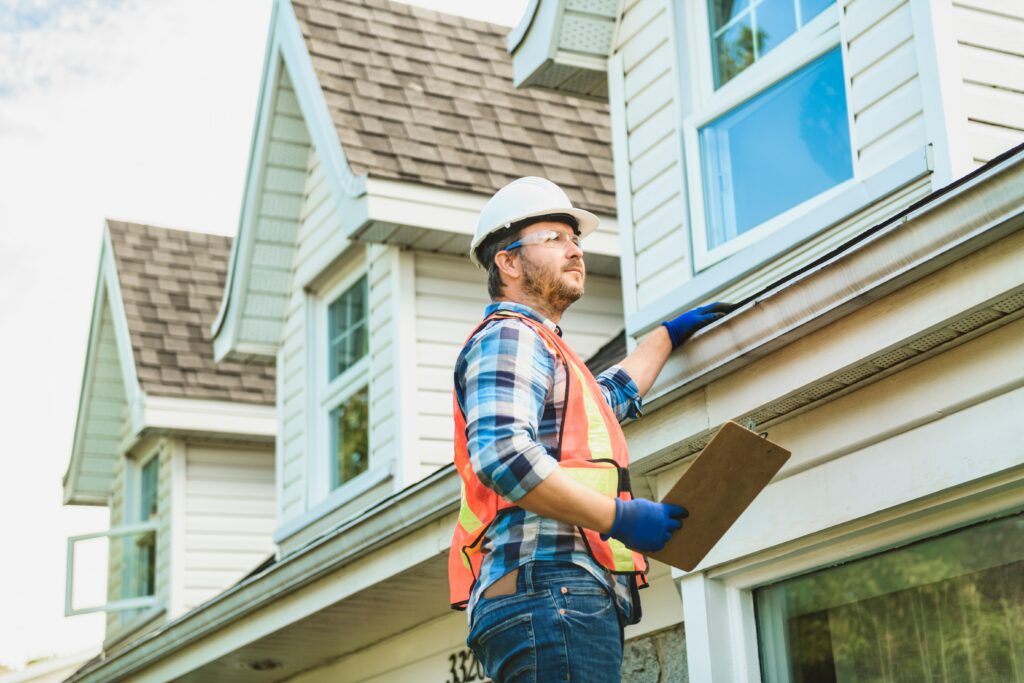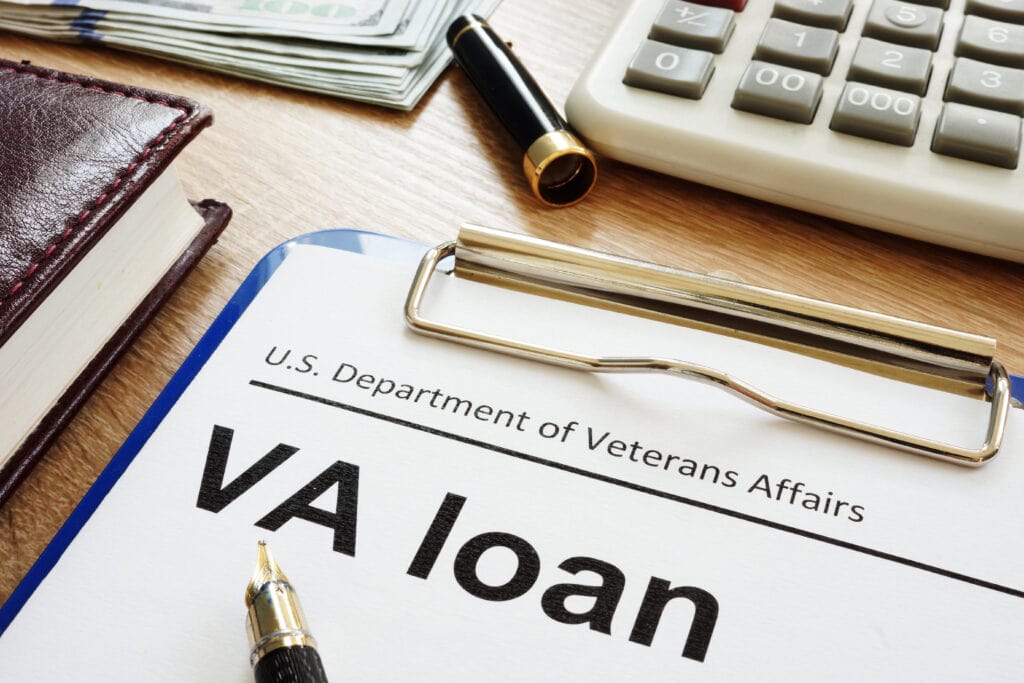Is a home inspection required for a conventional loan? Do I need a home inspection when buying a house?
Conventional loans, which are not backed by a government agency like the Federal Housing Administration (FHA) or the Department of Veterans Affairs (VA), typically do not have specific inspection requirements mandated by the loan program itself. However, whether or not a home inspection is required may depend on the lender’s policies, the appraiser’s findings, and the circumstances of the individual transaction.
Here’s how it typically works:
Appraisal vs. Inspection: Lenders usually require an appraisal to determine the fair market value of the property. While the appraiser may note obvious issues during the appraisal, their primary focus is on valuation rather than a detailed inspection of the home’s condition.
Lender’s Discretion: The decision to require a separate home inspection is often at the discretion of the lender. Some lenders may require an inspection if the appraisal raises concerns about the property’s condition, while others may not have such a requirement.
Borrower’s Choice: Even if a lender does not require a home inspection, it is generally a good idea for the buyer to arrange one independently. It’s in the buyer’s best interest to understand any potential issues with the property before finalizing the purchase.
Seller’s Disclosures: In some cases, sellers may provide a disclosure statement that lists known issues with the property. However, these disclosures may not cover all potential problems, and an independent inspection is still recommended.
Okay, let’s explore the ins and outs of home inspections for conventional loans, considering pros and cons along the way to supercharge your home-buying journey.
Table of Contents
Are There Conventional Loan Inspection Requirements?

Conventional loans do not have a specific requirement for a home inspection as part of the loan approval process, unlike some government-backed loans which have more stringent property condition requirements.
The primary requirement for a conventional loan is typically an appraisal, not a home inspection. The appraisal is required by the lender to assess the home’s value to ensure it aligns with the loan amount. The appraiser will evaluate the property based on its condition, comparable sales in the area, and other factors, but this evaluation is not as in-depth as a home inspection.
Why is there a difference? Because conventional loan inspections are typically less stringent than those required by government-backed loans such as FHA or VA loans. However, lenders offering conventional mortgages still have certain requirements to ensure the property is a sound investment.
Here are some key inspection-related requirements commonly associated with conventional loans:
Appraisal Inspection: The primary inspection for a conventional loan is the appraisal. An appraiser will evaluate the property’s value to ensure it meets or exceeds the purchase price. This inspection focuses on the property’s condition, size, location, and comparison with similar properties in the area.
Home Inspection (Optional but Recommended): While not always required by the lender, a buyer should consider a home inspection to be a critical step in the purchasing process. A home inspector will provide a detailed report on the condition of the property, including the electrical system, plumbing, roof, insulation, as well as heating and cooling systems. Although optional, it can reveal issues that could affect the home’s value or lead to significant expenses in the future.
Pest Inspection: Depending on the location and age of the home, a lender might require a pest inspection to ensure there are no infestations of termites, carpenter ants, or other pests that could damage the property.
Specialized Inspections: If the appraiser notes potential concerns with the property’s structure or systems (such as an aging roof, foundation issues, or an old HVAC system), the lender may require additional inspections by specialists in those areas.
Hazard Inspections: In certain areas prone to natural disasters (such as floods, earthquakes, or hurricanes), lenders may require specific hazard inspections. For example, in flood zones, a flood certification may be required, or in earthquake-prone areas, a seismic inspection might be necessary.
Insurance Requirements: While not an inspection per se, conventional loans often require proof of homeowners insurance, and depending on the location, additional hazard insurance (like flood insurance) may be mandated.
It’s important to note that specific requirements can vary by lender and the property’s location. Buyers should consult with their lender early in the process to understand all necessary inspection requirements and any associated costs. These inspections not only satisfy the lender’s requirements but also protect the buyer by ensuring the investment is sound and the property is safe and in good condition.
Here’s a quick comparison between the lender and buyer thinking about a home inspection:
- Lender’s Perspective: They’re looking at the loan’s risk. If the house is worth the money, then it should be to go.
- Buyer’s Perspective: You want to know what you’re getting into. Is the house solid, or are you buying a money pit that needs a lot of work?
Lender vs. Buyer Considerations
- Lenders care about property value; buyers care about property condition.
- Lenders use appraisals to assess value; buyers use inspections to assess condition.
Why Get a Home Inspection?
- To uncover potential problems before you buy.
- To negotiate repair costs with the seller.
- To plan for future maintenance costs.
What Does a Home Inspection Cover?
- Structural elements like foundations and beams.
- Systems like heating, plumbing, and electrical.
- Roof, windows, and doors status.
- General safety issues.
When Should I Consider a House Inspection?
- If you’re a savvy homebuyer who wants assurances.
- If you’re buying an older home.
- If the house looks like it needs some TLC.
- If you want to avoid unexpected repair bills.
Did You Know?
- Roughly 85% of homebuyers opt for a home inspection.
- Home inspections can identify over 1,500 items in need of attention.
Conclusion and Transition to Next Topic: So, you’ve got the scoop on home inspections for conventional loans. They aren’t mandatory, but they’re smart. Think of it as a health check-up for your future home. You want to make sure it’s fit and won’t leave you with costly surprises. Speaking of health, let’s consider the perks of getting that inspection done. You’ll gain insights into the home’s well-being, and it can be the key to negotiating a better deal, ensuring you step into your new life with confidence and security.
The Benefits of a Home Inspection When Acquiring a Conventional Loan
When you’re eyeing that dream home and considering a conventional loan, a home inspection might not be mandatory, but it sure is a smart move. Think of it as your house health check-up. It’s your chance to peek behind the curtains and see what you’re really buying.
Why get a home inspection? Well, for starters, it’s about knowing what you’re getting into. It can sway how you negotiate the deal and might just save you from splurging on future repairs. Here’s a quick rundown:
- Peace of Mind: You’ll sleep better knowing the exact state of your potential new home.
- Bargaining Power: Armed with knowledge, you can negotiate with confidence or walk away if needed.
- Cost Savings: Uncover issues early, so they don’t turn into costly surprises down the line.
Let’s not forget, a stitch in time saves nine. This old saying fits perfectly here. By catching problems early, you avoid bigger headaches later. It’s a little investment that goes a long way.
Numbers Speak Louder: Did you know that, according to a survey, almost 86% of homebuyers felt that the home inspection saved them from potential issues? That’s huge.
List of Benefits: – Spot structural problems – Uncover safety issues – Identify illegal installations or additions – Predict future costs – Gain negotiating leverage – Find potential insurance hurdles – Assess the quality of home systems and appliances
Table of Potential Savings
| Issue Found | Cost Without Inspection | Cost With Inspection |
|---|---|---|
| Roof Repair | $5,000+ | $0 – $1,000 |
| Mold Removal | $1,500+ | Included in price |
| Foundation | $10,000+ | Negotiable |
Now let’s shift gears a little bit. Think about the process as a solid defense against future issues. You’re protecting your investment, but you’re also ensuring your home is a safe haven for you and your family.
If you’re wondering about the nitty-gritty of getting a home inspection, consider checking out resources that shed light on the subject, like this informative article, which offers a deeper understanding.
As we wrap up, keep in mind that a home inspection might just be your best ally. It helps you see beyond the fresh paint and staged rooms, giving you a clear picture of what your future home holds. It’s not just about meeting loan requirements; it’s about securing your future happiness and financial stability. With this in mind, let’s look ahead at how lenders view the role of home inspections in the approval process for conventional loans, ensuring you’re as informed as possible when making such a significant decision.
How Lenders View Home Inspections in Conventional Loan Approvals
When you’re aiming to secure a conventional loan, understanding what lenders look for can make all the difference. It’s common to wonder, is a home inspection required for a conventional loan? The answer isn’t always straightforward. Generally, lenders are keen on ensuring the property’s value and condition meet their criteria. Here’s the lowdown on how this fits into the loan approval equation.
Lenders use appraisals, not typically inspections, to gauge a property’s worth. Yet, they might advise getting an inspection to zero in on any issues. Think of an appraisal as the lender’s tool and an inspection as your ally. Appraisals focus on value, while inspections dig into the nitty-gritty of the home’s condition. Sometimes, a lender might even nudge you toward an inspection if they suspect issues that could affect the property’s value or your wallet down the line.
Imagine you’re eyeing a home with an outdated electrical system. A lender knows this could lower the home’s value or hike up insurance costs. They’re likely to suggest an inspection to get this checked out. It’s not required, but it sure is smart.
Let’s break it down in a list: – Appraisals are a must; they confirm the home’s value for the lender. – Inspections aren’t mandatory but often recommended for your protection. – Lenders might urge an inspection if they foresee potential problems.
Here’s a quick glance at what lenders might consider:
- Age of the property: Older homes might hide issues that only an inspection can uncover.
- Property location: Certain areas might be prone to issues like flooding or earthquakes, prompting a closer look.
- Loan type specifics: While not for conventional loans, other loan types might have their own rules.
And if you’re curious about the nuts and bolts, check out these resources for a deeper dive into home inspections and conventional loans: The Mortgage Reports, Homestead PI, and Eric Estate.
Factors In Loan Approval Chart
| Factor | Significance in Loan Approval |
|---|---|
| Home’s Age | Might hint at underlying issues |
| Location | Certain risks may apply |
| Property Value | Directly impacts loan amount |
Transitioning smoothly from understanding lender perspectives, let’s consider the next steps. After sizing up the importance of home inspections, we naturally progress to weighing them against another crucial element: home appraisals. These two are distinct pieces of the home-buying puzzle, each with its role in safeguarding your interests and satisfying lender requirements. Ensuring you’re well-informed about both will equip you to navigate the home-buying process with confidence.
In conclusion, while you’re mulling over the right steps to secure your dream home, remember that a keen eye on inspections can save you from future headaches.
Understanding the Difference: Home Inspection vs. Home Appraisal
When you’re eyeing that dream home and considering a conventional loan, it’s key to grasp the distinction between a home inspection and a home appraisal. Both play roles in the home-buying saga, yet they’re not twins. Here’s the lowdown.
A home appraisal is a must-have for lenders. It’s about protecting their investment by ensuring the home’s value meets or exceeds the loan amount. On the flip side, a home inspection isn’t a lender’s demand but smart for buyers. It’s like a health check-up for the property, spotlighting issues that could need a fix.
Home Appraisal: The Lender’s Best Lookout
- Assesses home’s value
- Required by lenders
- Focus: Is the home worth the dough?
Home Inspection: The Buyer’s Best Buddy
- Scans for defects or repairs
- Optional but wise
- Focus: What’s hiding behind those walls?
Now, while appraisals are part of the loan process, home inspections are your call. They’re not typically mandated by the mortgage folks, but skipping one could lead to headaches later. Think of it as a way to sidestep surprises that could cost a pretty penny post-purchase.
Let’s say you decide to move forward without an inspection and later find out the roof needs replacing. Ouch, that’s a hefty hit to your wallet, right? It’s reasons like this that a thorough home check-up can be a lifesaver.
Home Inspection vs. Home Appraisal Differences
| Home Appraisal | Home Inspection |
|---|---|
| 🗹 Lender required | 🗹 Buyer’s choice |
| 🗹 Value assessment | 🗹 Condition check |
| 🗹 Secures loan | 🗹 Informs buyer |
Now, if you’re wondering about the nitty-gritty of these two steps, here’s a bit more to chew on. An appraiser drops by, takes a look around, and crunches numbers based on recent sales of similar homes, among other factors. But an inspector gets down and dirty, checking out everything from plumbing to electrical systems.
So, back to our main question: Is a home inspection required for a conventional loan? Nope, it’s not on the lender’s must-have list. Getting that inspection could arm you with info to negotiate a better deal or bolt if the issues are too big.
You might find yourself pondering, “What if something’s off in the inspection?” Good thinking! If the inspection report comes back with a laundry list of fixes, it’s time for a chat. You can negotiate with the seller to either drop the price or tackle the repairs before you seal the deal.
And that brings us to our next point. What happens if you uncover issues? It’s about weighing the bad against the good of the home. Maybe it’s got a few quirks, but it’s still your dream spot. Or perhaps the problems are deal-breakers. That’s your call to make, and it’s a big one.
Remember, a home is more than a place to crash. It’s a massive investment and a slice of your future. So, when you’re on this journey, think of a home inspection as a trusty compass. It might not be a lender’s demand, but it sure can guide you to a wise decision.
What If a Home Inspection Reveals Issues?
Imagine this: You’re eyeing up your dream home; it’s got charm, a splendid view, and a price tag that doesn’t make your wallet weep. But there’s a catch. The home inspection turns up a laundry list of problems. Now what?
- We’ve got you covered with a savvy buyer’s game plan.
- Learn how to navigate the choppy waters of loan approval when inspections go south.
First, let’s tackle the problem head-on. Say the inspector finds a leaky roof or an ancient plumbing system. These aren’t just headaches; they’re potential deal-breakers for a conventional loan. Why? Lenders love stability. They want to know the house won’t crumble or cost a fortune in repairs soon.
Here’s where you can flex some negotiation muscle. You can ask the seller to fix the issues or drop the price. Sometimes, they’ll meet you halfway. Other times, you might need to weigh the cost of repairs against the home’s value. Does it still add up?
Now, let’s talk options. Say the issues are significant, but you’re head over heels for the place. You might consider a renovation loan. These loans factor in the cost of fixing up your new digs. They’re a bit like a home improvement store gift card wrapped up with your mortgage.
Home Inspection Issues Table
| Problem Uncovered | Buyer’s Action | Effect on Loan Approval |
|---|---|---|
| ✅ Minor Repairs | ✅ Ask for a credit or fix before closing | ✅ Generally won’t impact approval |
| 🛑 Major Issues | ✔️ Renegotiate price or consider a renovation loan | ✔️ Approval may be conditional on repairs |
| 🛑 Structural Damage | ❌ Proceed with caution, could be a deal-breaker | ❌ Significant repairs required for loan consideration |
Remember, a professional inspector’s role is pivotal. They’re your eyes and ears, scoping out the nooks and crannies you might miss. Their findings can make or break your home-buying journey. So choose wisely. A thorough inspection can save you from a money pit.
As you wrap up the home inspection chapter, it’s natural to consider what comes next. Arranging a home inspection can seem daunting, but think of it as your home-buying compass, guiding you toward a sound investment. With the right approach, you’ll have clarity and peace of mind as you step into the world of homeownership.
How to Arrange for a Home Inspection
So, you’re eyeing a new home and considering a conventional loan. Smart move! But do you need a home inspection? It’s not always required, but it’s wise. Let’s walk through setting one up.
Choosing Your Home Inspector Find a pro with solid experience. Check their credentials and read reviews. Make sure they’re legit and know their stuff.
Setting the Date Once you’ve picked your inspector, set a date. Aim for a time when you can be there. You’ll learn heaps by tagging along.
During the Inspection Expect the inspector to be thorough. They’ll check the whole place, from the roof down to the foundation. It’s all about making sure the home’s safe and sound.
The Timeline The whole shebang typically takes a few hours. But it can vary based on the home’s size and age.
Now let’s break it down into some easy steps:
- Research inspectors with solid reputations.
- Reach out and set a date that works for you.
- Be there on the day to see everything first-hand.
- Get a report of the findings to review.
Why It’s Key A home inspection can save you a world of trouble. It’s your chance to catch issues before they become your problems. And if you’re getting a loan, it shows your lender you’re serious about this investment.
How to Compare Home Inspectors
| Inspector | Years of Experience | Certifications | Customer Ratings |
|---|---|---|---|
| Inspector A | 10 | NACHI, ASHI | 4.8/5 |
| Inspector B | 8 | InterNACHI | 4.7/5 |
| Inspector C | 15 | ASHI, State License | 4.9/5 |
Remember, a home inspection is a smart choice, even if it’s not a must-have for your loan. It’s a bit like a check-up for the house. And just like you wouldn’t skip a check-up for your own health, don’t skip this. It could save you big bucks and headaches down the line.
If you’re feeling ready to take the next step, why not check out our 18-day closing guarantee? It’s one way we make the home-buying process smoother for you. And hey, we’re in this together. We want you to get into your new home just as much as you do.
In wrapping up, remember that a home inspection is a critical step in securing your future home. It offers peace of mind, uncovers potential issues, and could even give you some bargaining power. Now, as you mull over the insights from your inspection, consider what comes next. Your journey to homeownership is about to hit a sweet new chapter.
Conclusion and Wrap-Up
Wrapping up, we’ve navigated the essentials of a home inspection for a conventional loan. We know a home inspection isn’t mandated but it’s smart to get one. It’s all about peace of mind and protecting your cash. At District Lending, we stand by your side, making sure you step into your dream home with eyes wide open. Our team’s here to guide you through each bit of the process, and guess what? We do it fast. Imagine, in just 14 days, you could be holding the keys to your new place!
Key Takeaway Here’s the deal: a home inspection can save you from unseen troubles and costs. It’s a key part of buying a home wisely. And while you’re being smart, why not save some cash too? With District Lending Get a Free Quote, expect lower rates with zero lender fees. It’s how we make sure you’re not just buying a house, but also scoring a sweet deal.
We have loan experts standing by ready to help you. We can’t wait to help you get into your perfect home with the best deal possible. And hey, don’t just take our word for it. Our customers rave about how we outdo the big dogs with our high-quality customer service. We’re here in your corner, ready to fight for the best rates and a hassle-free process. Let’s make your home dreams a reality!
Is a Home Inspection Required for a Conventional Loan: Frequently Asked Questions (FAQs)
#1. Is a home inspection mandatory for obtaining a conventional loan?
No, a home inspection is not legally required for obtaining a conventional loan. However, lenders may strongly recommend having one done to ensure the property’s condition is satisfactory before completing the purchase.
#2. What is the difference between a home inspection and an appraisal?
A home inspection is a comprehensive examination of a property’s condition, conducted by a professional inspector. It focuses on the performance and lifespan of various components of the home. An appraisal, on the other hand, is an evaluation of a home’s market value, which lenders require to ensure the loan amount does not exceed the property’s worth.
#3. Can a lender require a home inspection?
While lenders typically do not require a home inspection for a conventional loan, they can recommend or encourage a borrower to get one. The decision ultimately lies with the borrower, but it’s considered a good practice for informed purchasing.
#4. Why might a buyer opt for a home inspection if it’s not required?
Buyers may opt for a home inspection to uncover any potential issues with the property that could lead to expensive repairs in the future. It provides a level of protection and peace of mind, knowing the true condition of the home before finalizing the purchase.
#5. What could happen if I waive the home inspection?
Waiving the home inspection could expose you to unforeseen issues with the property, such as structural problems or hidden defects, that could be costly to repair. It could also limit your ability to negotiate repairs or a better price with the seller based on the inspection findings.
#6. Does forgoing a home inspection affect my conventional loan approval?
Forgoing a home inspection does not typically affect the approval of your conventional loan, as the loan is primarily based on your creditworthiness and the property’s appraisal value. However, it could impact your future financial situation if significant property issues are discovered later.
#7. Who pays for the home inspection?
The buyer is usually responsible for paying for the home inspection. The payment is made directly to the home inspection service, and it is separate from the closing costs of the real estate transaction.
#8. How much does a typical home inspection cost?
The cost of a home inspection can vary depending on the size, location, and age of the property, but typically ranges from $300 to $500. In some cases, additional services like radon or mold testing may incur extra charges.
#9. What does a home inspector look for during the inspection?
A home inspector evaluates the physical structure and systems of a house, from the roof to the foundation. This includes examining the condition of the home’s exterior, plumbing, electrical systems, heating and cooling systems, windows, doors, floors, and more.
#10. Can I still negotiate repairs with the seller based on the home inspection report?
Yes, if you have a home inspection and issues are found, you can negotiate with the seller to either make the necessary repairs or to adjust the sale price accordingly. This is a common practice and is often part of the contingency terms in a real estate contract.
About the Author

Brian Reese is a senior advisor and co-owner at District Lending. He is one of the world’s leading experts in veteran benefits, having helped millions of veterans secure their financial future since 2013. Brian is the founder VA Claims Insider, an education-based Coaching & Consulting company whose mission is to educate and empower veterans to get the VA disability benefits they’ve earned for their honorable service. A former active-duty air force officer, Brian deployed to Afghanistan in support of Operation Enduring Freedom. He is a distinguished graduate of management of the United States Air Force Academy and earned his MBA as a National Honor Scholar from the Spears School of Business at Oklahoma State University.
“As a military veteran, I’ve made it my life’s mission to help people live happier and wealthier lives. District Lending brings this mission to life. We believe in integrity, honesty, and transparency, which is why you’ll see our rates right on our website. You’ll find lower rates and zero lending fees, which means you can buy your dream home for less. The savings are passed on to you — the way it should be.”
– Brian Reese, Advisor and Co-Owner, District Lending






